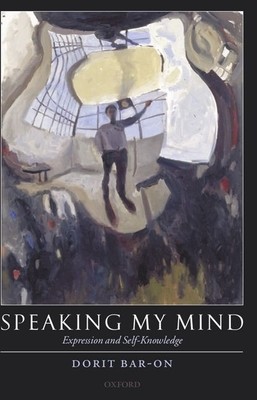
- We will send in 10–14 business days.
- Author: Dorit Bar-On
- Publisher: Clarendon Press
- ISBN-10: 0199276285
- ISBN-13: 9780199276288
- Format: 16.1 x 23.3 x 2.6 cm, softcover
- Language: English
- SAVE -10% with code: EXTRA
Reviews
Description
We are all very good at telling what states of mind we are in at a given moment. When it comes to our own present states of mind, what we say goes; an avowal such as "I'm feeling so anxious" or "I'm thinking about my next trip to Paris," it is typically supposed, tells it like it is. But why is that? Why should what I say about my present mental states carry so much more weight than what others say about them? Why should avowals be more immune to criticism and correction than other claims we make? And if avowals are not based on any evidence or observation, how could they possibly express our knowledge of our own present mental states?
Dorit Bar-On develops and defends a novel view of avowals and self-knowledge. Drawing on resources from the philosophy of language, the theory of action, epistemology, and the philosophy of mind, she offers original and systematic answers to many long-standing questions concerning our ability to know our own minds. Bar-On proposes a Neo-Expressivist view according to which avowals are expressive acts that have truth-accessible self-ascriptions as their products. When avowing, a person directly expresses, rather than merely reports, the very mental condition that the avowal ascribes. She argues that this expressivist idea, coupled with an adequate characterization of expression and a proper separation of the semantics of avowals from their pragmatics and epistemology, explains the special status we assign to avowals. As against many expressivists and their critics, she maintains that such an expressivist explanation is consistent with a non-deflationary view of self-knowledge and a robust realism about mental states. The view that emerges preserves many insights of the most prominent contributors to the subject, while offering a new perspective on our special relationship to our own minds.EXTRA 10 % discount with code: EXTRA
The promotion ends in 20d.10:08:42
The discount code is valid when purchasing from 10 €. Discounts do not stack.
- Author: Dorit Bar-On
- Publisher: Clarendon Press
- ISBN-10: 0199276285
- ISBN-13: 9780199276288
- Format: 16.1 x 23.3 x 2.6 cm, softcover
- Language: English English
We are all very good at telling what states of mind we are in at a given moment. When it comes to our own present states of mind, what we say goes; an avowal such as "I'm feeling so anxious" or "I'm thinking about my next trip to Paris," it is typically supposed, tells it like it is. But why is that? Why should what I say about my present mental states carry so much more weight than what others say about them? Why should avowals be more immune to criticism and correction than other claims we make? And if avowals are not based on any evidence or observation, how could they possibly express our knowledge of our own present mental states?
Dorit Bar-On develops and defends a novel view of avowals and self-knowledge. Drawing on resources from the philosophy of language, the theory of action, epistemology, and the philosophy of mind, she offers original and systematic answers to many long-standing questions concerning our ability to know our own minds. Bar-On proposes a Neo-Expressivist view according to which avowals are expressive acts that have truth-accessible self-ascriptions as their products. When avowing, a person directly expresses, rather than merely reports, the very mental condition that the avowal ascribes. She argues that this expressivist idea, coupled with an adequate characterization of expression and a proper separation of the semantics of avowals from their pragmatics and epistemology, explains the special status we assign to avowals. As against many expressivists and their critics, she maintains that such an expressivist explanation is consistent with a non-deflationary view of self-knowledge and a robust realism about mental states. The view that emerges preserves many insights of the most prominent contributors to the subject, while offering a new perspective on our special relationship to our own minds.

Reviews